A prosecutor said she can't fulfill her ethical duties under DA Pamela Price. We asked why.
Charly Weissenbach said she's not comfortable in the spotlight — but felt it was her duty to speak out.

After 10 years with the Alameda County DA's office, veteran trial attorney Charly Weissenbach is walking away.
Not because she wants to, but because she feels she has to.
"It has been an honor to represent the People of the State of California while fighting for the rights of crime victims in Alameda County. I felt I had the ability to fight for justice every day; to do the right thing, for the right reasons, and in the right way," Weissenbach wrote in her March 10 resignation later, which was quickly leaked to the media by an unknown third party.
"Unfortunately," she continued, "I no longer feel capable of fulfilling my legal and ethical duties as a prosecutor under this administration."
It was those words that carried the most weight and have continued to ripple through the community more than a week later, on social media and on private social network Nextdoor.
A close friend who read the letter before Weissenbach submitted it said she should leave the last line out, advising her that her bosses wouldn't want to hear it.
"I know they won't care," she told him. "But I do."
Weissenbach's letter has perhaps had so much resonance because she is the first Alameda County deputy district attorney to go on the record with her doubts about the new administration.
A growing number of people from the office have raised concern in the media over the past two months about newly elected District Attorney Pamela Price.
But they asked to remain anonymous because they were worried about potential workplace retribution. And Weissenbach was not among them.
But, over the weekend, she granted The Berkeley Scanner an in-depth interview before beginning her new job Monday with the San Francisco district attorney's office.
Weissenbach said she's not comfortable in the spotlight but felt it was her duty to speak out.
"It's important for the community to know what's happening and it's important for the victims to feel like they're not alone," she said. "I don't want them to feel like everyone has abandoned them."
Price "cared more" about defendants, prosecutor says
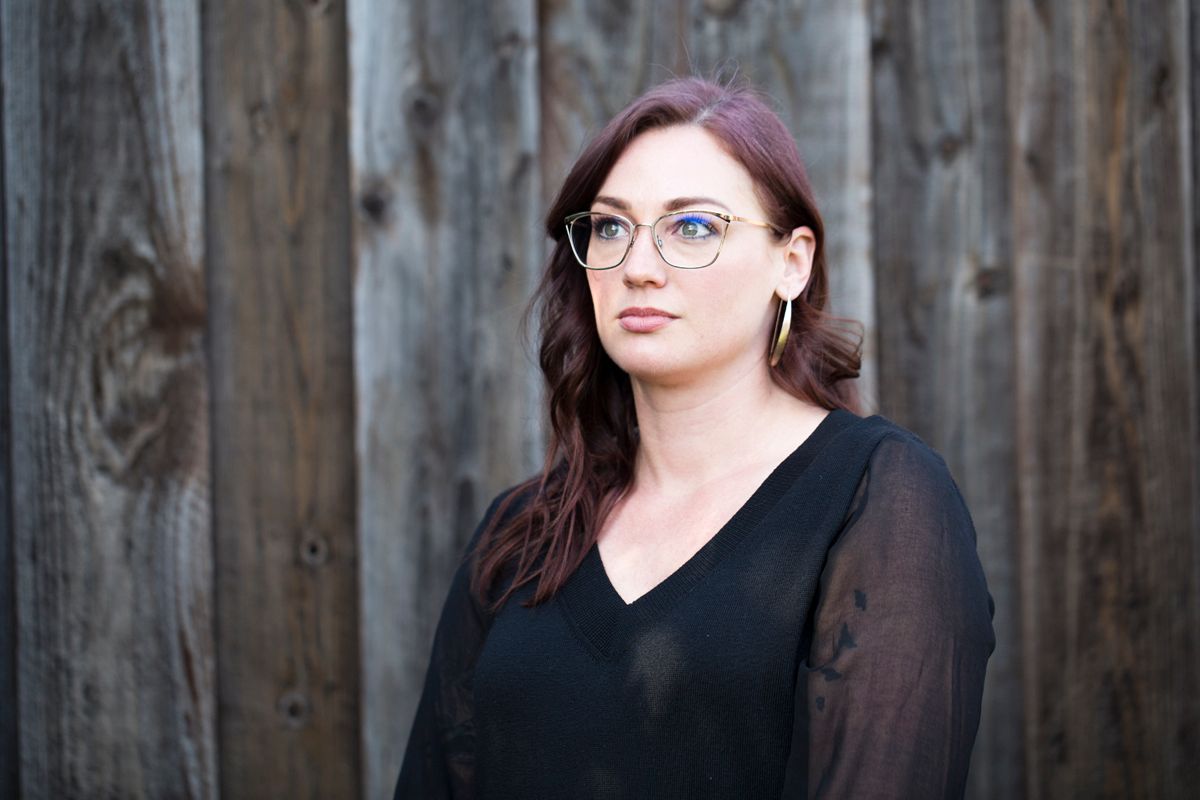
Weissenbach first worked at the Alameda County DA's office in 2012 as a law clerk then was hired on as a prosecutor after graduating from Berkeley Law in 2013.
She never left.
During her decade with the office, she served in a range of assignments, from the sexual assault unit to multiple rotations with the felony trial team.
Weissenbach said she, like many in the office, believes the criminal justice system has historically been flawed and that there are reforms that can be put in place, particularly in relation to nonviolent conduct or first-time offenders.
But she said she does not believe that smart reform looks like "throwing out the baby with the bathwater."
The issues Weissenbach raised over the weekend echoed the earlier points surfaced by many of her colleagues in recent months.
They ranged from an office policy shift toward minimal consequences for most crimes to a lack of concern for crime victims and their families, Weissenbach said, as well as a too-close relationship with defense counsel and the unprofessional, sometimes "malicious" treatment of existing employees, from attorneys and inspectors to victim-witness advocates and administrative staff.
"Everyone in the office calls Friday 'Bloody Friday' because that's when so many of our colleagues have been placed on leave, fired or unceremoniously transferred," she said. "Everyone is constantly on edge waiting for the other shoe to drop."
The pressure and uncertainty have been intense.
"If we get a guilty verdict, will we be walked out? If we question her directive, will we be walked out?" Weissenbach continued. "We're even feeling like, if we're honest with our victims about charging and sentencing, we could be walked out for that."
Earlier this month, Price put in place a directive that effectively required bare-bones charging and probation offers in most cases — whether a defendant inflicted serious injury, had a serious criminal history or used a gun during the commission of a crime other than murder.
Since issuing that directive, the Price administration has "expressly told DAs not to be honest" about charging and sentencing decisions when they explain them to victims and their families, Weissenbach said.
"They're expressly telling us not to be transparent about who is making the decisions. They are expressly telling us to keep it vague to save their own skin," she said, as in: "Don't say this was Pamela Price going light on crime, instead say this is just what you think is appropriate."
Sources say the administration has been careful not to put that type of guidance into writing, however.
Weissenbach said Price has been much more inclined to meet with defendants and their families than with victims and their families, and has in many cases been pleading out criminal cases without discussions with victims.
That is a violation of Marsy’s Law, Weissenbach said.
California law gives victims and their families a right to be informed and involved in the legal process, which includes having an opportunity to be heard and being notified if a case may resolve with a plea deal.
"It became really clear during my time under Pamela Price that she didn't care about the victims," Weissenbach said. "She cared more about the criminal defendants and how she can undo what she believes are historical injustices by creating what appears to be anarchy in Alameda County — with no consequences for the people who harm community members here."
This dynamic has made for tense meetings between District Attorney Price and families who have suffered the worst imaginable losses.
"How Price approaches the families is always very much that the family needs to be more sympathetic to the person accused of the crime," Weissenbach said, "not, I’m so sorry this happened to you, or I’m so sorry for your loss. There's no acknowledgment of that."
Experienced trial attorneys are resigning

Alameda County District Attorney Pamela Price declined to comment for this story in relation to both general and specific questions.
The Scanner has repeatedly asked to interview Price about her vision and goals, but those requests have not been granted.
Price's office has indicated that it does not like The Scanner's reporting on its operations but has never cited errors in the articles or requested any corrections.
Price, a longtime civil litigator whose career largely focused on employment law and civil rights cases, was elected in November by 53% of the voters on her promise to "disrupt the system" by reducing prison stays, addressing racial disparities and holding police accountable, among a list of other priorities.
And, unsurprisingly, her supporters continue to vigorously defend her.
For many in the office she came into, however, it has been a different story.
One of Price's first tasks as Alameda County's new district attorney was to put a half-dozen of its most seasoned prosecutors on leave.
Since then, another attorney has been placed on leave and an additional lawyer was dismissed without cause during the probationary period where there are no union protections.
As of this week, six experienced trial prosecutors have left or given notice for other DA's offices, further thinning the ranks: Five, including Weissenbach, are going to San Francisco, office sources said.
On Tuesday afternoon, Jill Nerone submitted her resignation letter after working for the Alameda County district attorney's office for 33 years.
Nerone is one of the statewide DA experts in insurance fraud, colleagues said.
"I am resigning because I no longer feel able to adequately and ethically protect the rights of victims under your administration," wrote Nerone. Her letter was widely circulated in the hours after she submitted it. "I am hopeful that your policies will soften, and that crime victims will once again be the priority of the office."
Sources familiar with the office say others who have resigned have similar concerns and that more departures are coming.
"This trend will continue and will leave victims of serious and violent crime without seasoned, experienced deputy district attorneys," one person said. "Instead, they’ll be left with inexperienced lawyers who lack the knowledge, passion and skillset to fight for victims in court."
Multiple people, including retired Assistant District Attorney Jill Klinge, say they have a hard time seeing how the office will ever recover from the deep experience that has been lost.
"Charly is a prime example of the talented, dedicated and compassionate attorneys who have felt compelled to leave Alameda County, seeking offices where they can continue to advocate and fight for victims and the safety of the communities they serve," Klinge said over the weekend, speaking to The Scanner for the first time.
"Many of the employees — lawyers, inspectors and victim-witness advocates — are being pushed to their moral and ethical limits by the new administration’s sole focus on defendants to the exclusion of victim rights and public safety," continued Klinge, who worked at the Alameda County DA's office for more than 34 years until her retirement last year.
Klinge said the office has long been regarded as one of the top prosecutors’ offices in the nation, but that the departure of so many experienced employees "will cause irreparable harm to the quality of prosecutions in the county and public safety," she said. "Unfortunately, the administration’s new hires lack prosecutorial experience, and many have never practiced criminal law."
Since January, among other new hires, Pamela Price has brought on eight former public defenders to work as deputy district attorneys in the office, sources said.
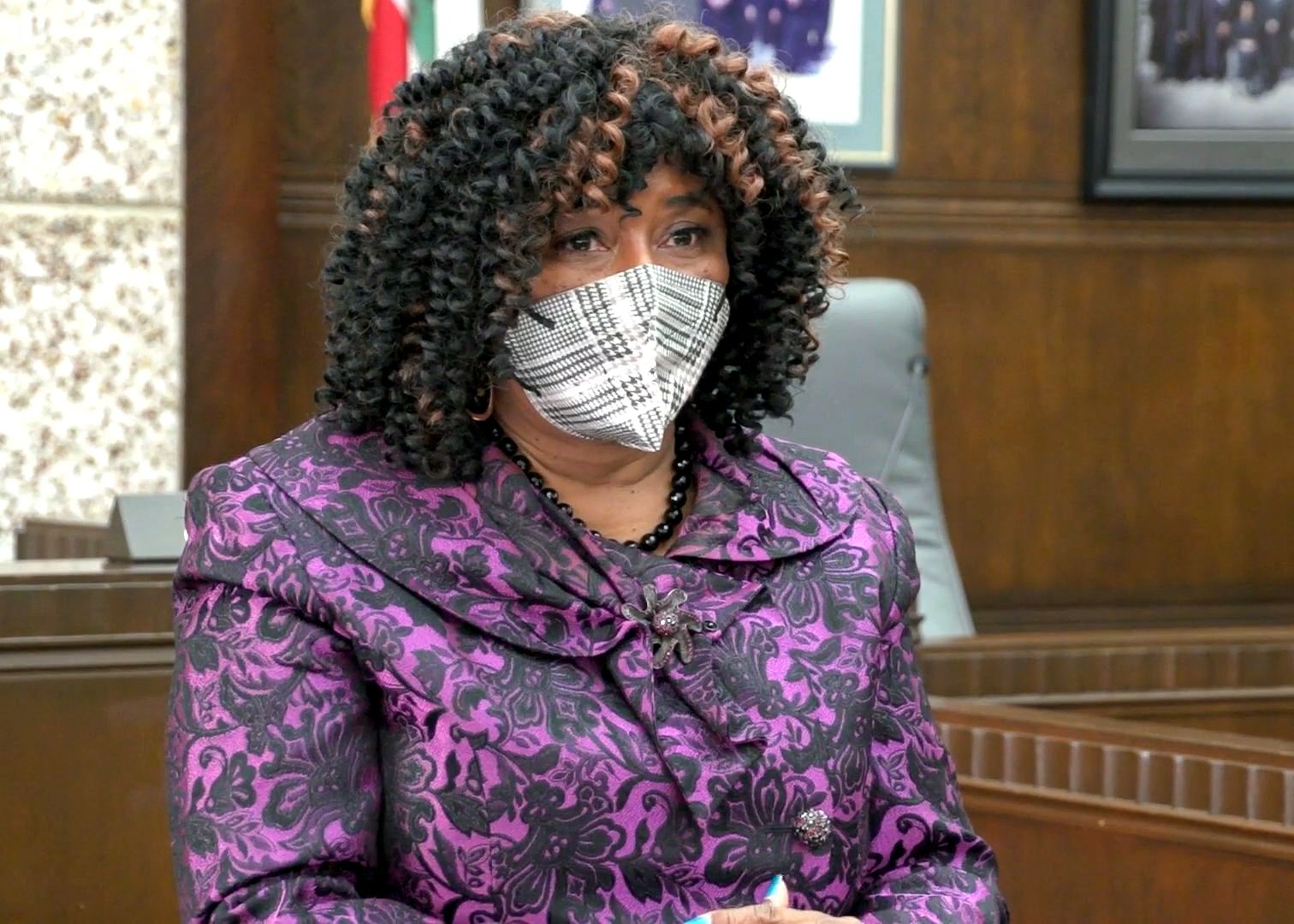
As for the seasoned prosecutors Price put on leave, sources say she has not responded to their requests for Skelly hearings, which are legally required under the Alameda County Prosecutors' Association contract.
And she has never met with the union — despite repeated requests to do so over the past several months, said Matt Finnegan, who is part of the Teamsters Local 856, which represents Alameda County prosecutors.
The Skelly hearing is the first step in which the employees placed on leave can hear evidence against them and present material in their own defense. That hearing must take place before the cases can move to arbitration in front of a judge from outside the DA's office.
"We are confident our members will receive due process, including the right to a fair hearing before a neutral administrative law judge," the Teamsters Local 856 told the Alameda County Board of Supervisors in a letter earlier this year when the bulk of the prosecutors were placed on leave. "Unfortunately, considerations of this sort do little to improve the devastating impact these developments have had on office morale."
Employee wellness is "the lowest it's ever been"
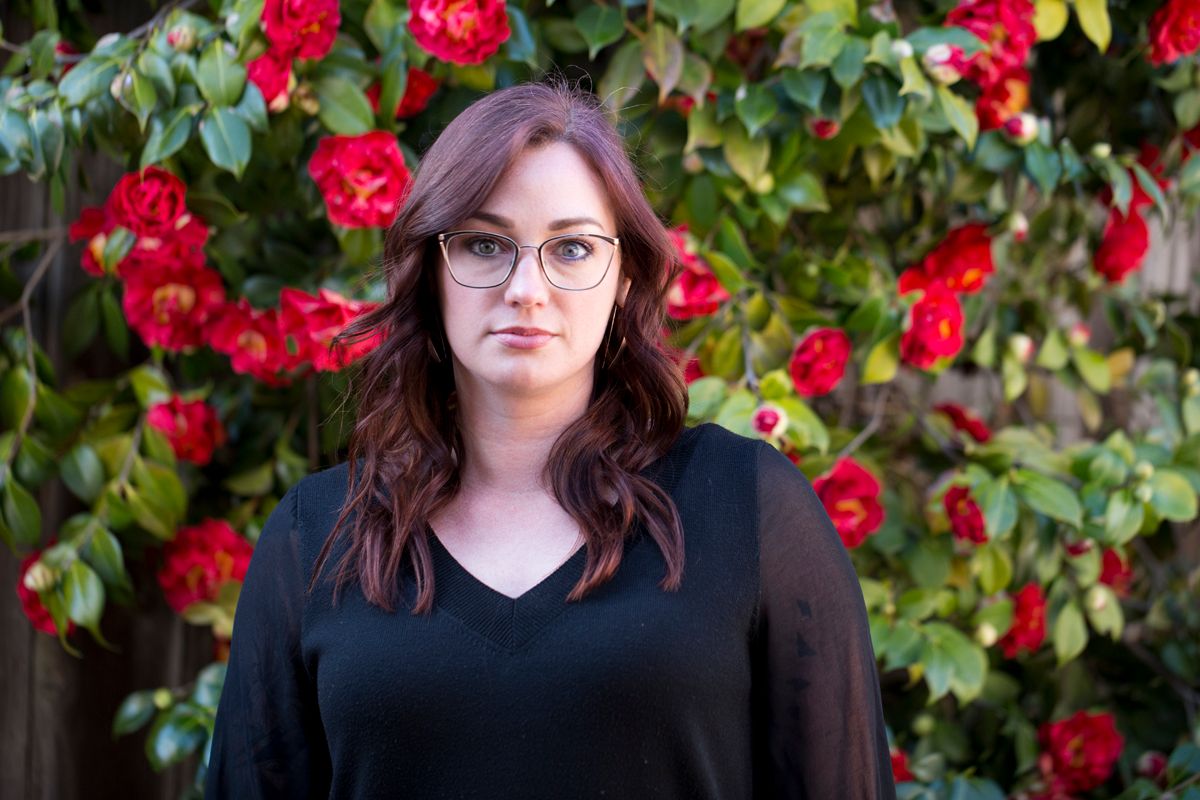
Weissenbach confirmed that morale is flagging for many existing employees under the new administration.
"The emotional and mental health of our office is the lowest it’s ever been," she said. That's due in part to the ongoing terminations and transfers as well as the placement of prosecutors on leave. "That is not healthy for anyone and it's added a level of stress and anxiety on top of a job that’s already very stressful. We’re dealing with people's lives."
Weissenbach said the new administration seems to be aware of those stressors and recently sent an office-wide email to express concern about employee wellness.
But the timing couldn't have been worse.
"The email went out at the same time someone was getting walked out," she said. "How can you mean that? It’s just untenable."
Weissenbach defended her former colleagues who were placed on leave, saying many have been with the office for decades, have committed their lives to this work and did nothing wrong.
She's convinced they will get their jobs back if they are able to wait out the review process. But there's no guarantee they will, particularly given the apparent lack of movement on the investigations thus far.
Those benched prosecutors "want to be at their desks and in the courtroom, not at home," the union told the Board of Supervisors in its letter earlier this year. "It is inevitable that their absence, even if temporary, will be felt far beyond the office and into the communities we all serve."
Weissenbach said she believes Price is hoping the DAs on leave will "just go away."
"I think she came in with a list of people she wanted gone," Weissenbach said. "She has been trying to fit a square peg into a round hole to fulfill that desire."
"The hardest day of my life"
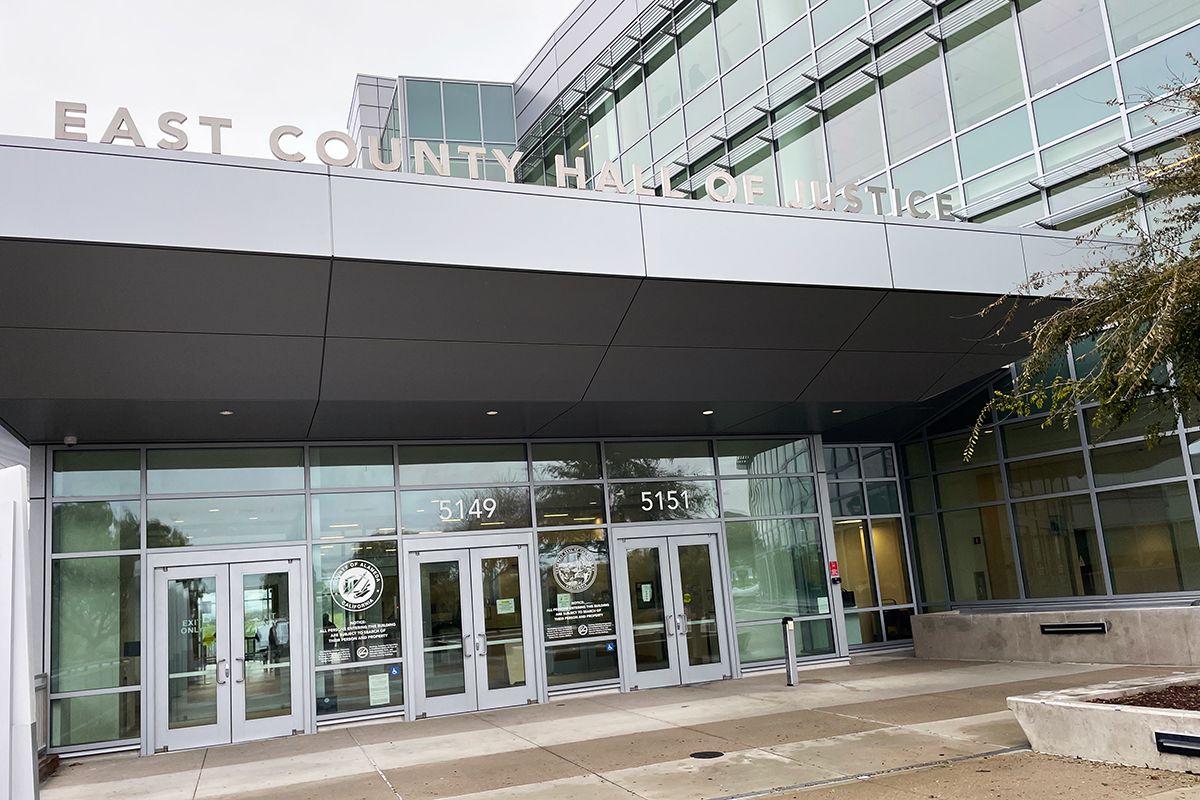
Even without her plan to resign, Weissenbach's last day at work would have been heavy for anyone.
That morning, she appeared in an Alameda County courtroom in Dublin to see how a 63-year-old man convicted of sexually abusing six young girls would be sentenced.
Several of his victims addressed the court and powerfully described how the abuse had damaged them and changed their lives.
"I've tried to forget, I've tried to heal," one girl said. "But something like this causes irreversible damage. The things that were done to us would be horribly traumatizing at any age. But this being done to us at such young ages has caused trauma that has affected our lives in so many ways."
"Our ability to trust has been destroyed," she said. "And, as for myself, I haven't ever felt completely safe around a man again. And I fear I may not ever."
She asked the court to give the man "the most time possible" and asked that he never be released on parole.
"After everything he has done," she said, "this is the justice we deserve."
That morning, Weissenbach asked Judge David Pereda to hand down the maximum allowable sentence of 225 years to life due to the high number of victims, the egregiousness of the conduct and because the defendant, Walid Hamze, had been found guilty of taking advantage of a position of trust during his many years of abuse, among other factors.
No mitigating factors were put forward in his defense.
"I do believe that 225 years to life is justice in this case and that, while a criminal punishment cannot undo what the defendant did," Weissenbach told the judge, "it does send a message to the victims and the community that this type of behavior will not be tolerated. Will not be overlooked."
Pereda ultimately handed down a sentence of 90 years to life.
During the hearing, Weissenbach also advised the court of Price's recent directive because it could still affect sentencing in the case.
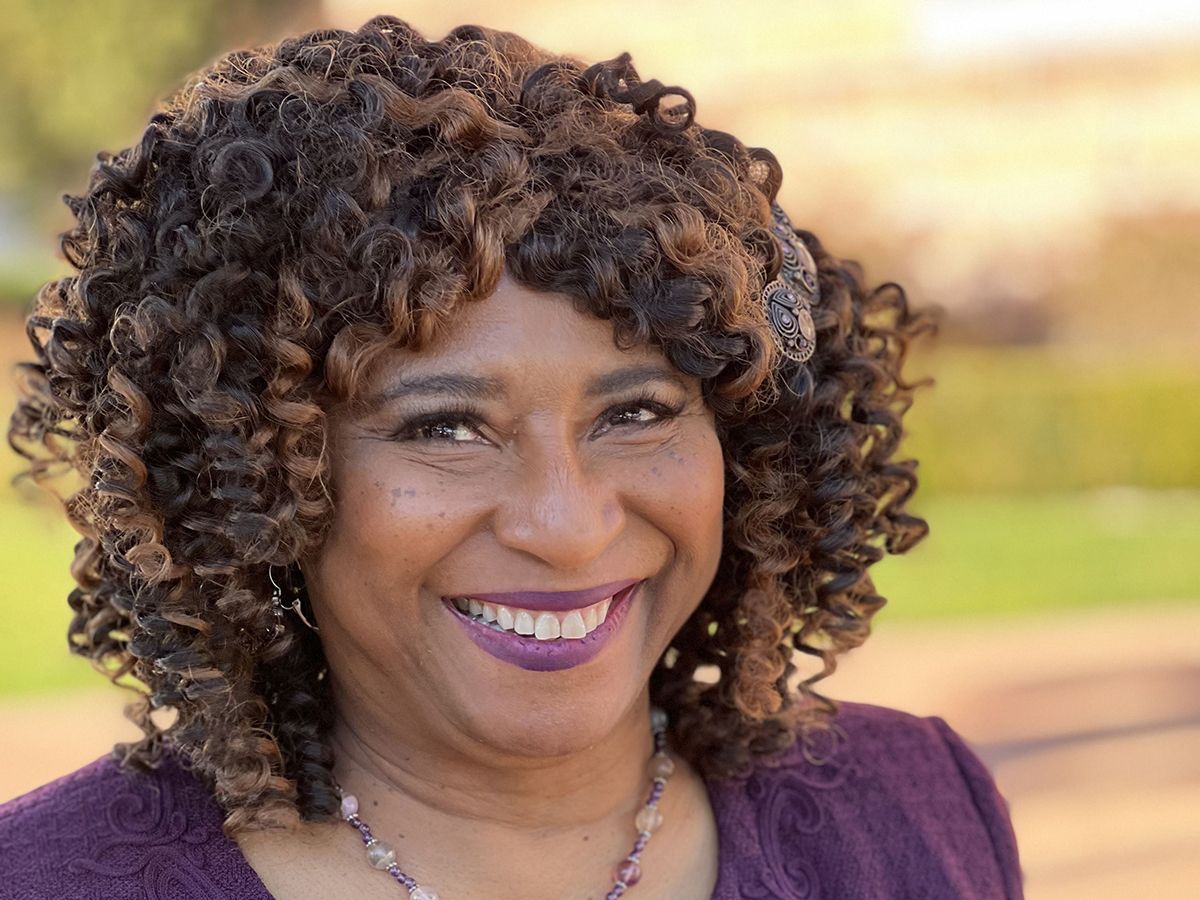
Weissenbach had submitted her sentencing recommendation before Price issued the directive. But, under the new guidelines, the DA's office could elect to review Hamze's sentence and ask the court to reduce it.
Weissenbach told the court it was her ethical duty to bring up the directive so it had the proper context and said that, "based on that directive, along with other conduct in my office, I expect to tender my resignation later this morning."
Over the weekend, Weissenbach told The Scanner it had been "the hardest day of my life."
"Based on the content of the victims' statements," she said, "I cried in open court for the first time in my career. They have just come such a long way as far as their growth and their healing and their processing of what happened to them."
Weissenbach has handled the case for years, from the preliminary hearing through the recent trial.
The morning had carried the added weight of the Price directive, and how it could still change the sentence, as well as knowing she would be leaving the only job and colleagues she had known for so much of her life.
"I lost sleep over wondering, how do I do this in a professional, ethical way?" she said.
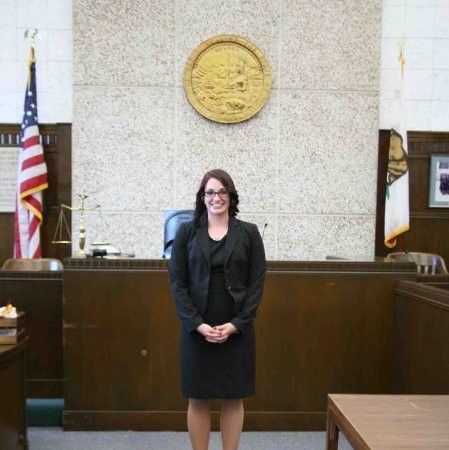
Weissenbach said she became a prosecutor so she could "do right every day."
She worked three jobs to put herself through college and came out of law school with more than $200,000 in loans.
But she didn't want to end up in a stuffy law firm surrounded by privileged people who might lack perspective.
She focused her sights on the Alameda County DA's office because it was known as the most prestigious office in the state as far as training and trial work.
It was also a down-to-earth place with a lot of camaraderie, where attorneys worked hard to support each other: routinely showing up in court to watch and learn from each other during big arguments, sharing key advice during critical moments and even helping with home-improvement projects that needed extra hands.
Most importantly, Weissenbach said, the office had always understood the need for balance between coming up with fair outcomes in criminal cases while also passionately fighting for victims' rights.
There were diversion courts for alternative sentencing, along with consideration for defendants who came from disadvantaged backgrounds or were struggling with mental health issues.
The office had always been a place, she said, that was not about the win, but about facilitating a just outcome.
"I felt the honor of doing things the right way, not forcing a conviction for conviction's sake. We’re not in this to quote-unquote win," Weissenbach said. "We’re in this to do justice."
Read more deep dives from The Berkeley Scanner and our ongoing coverage of the Alameda County district attorney's office.





